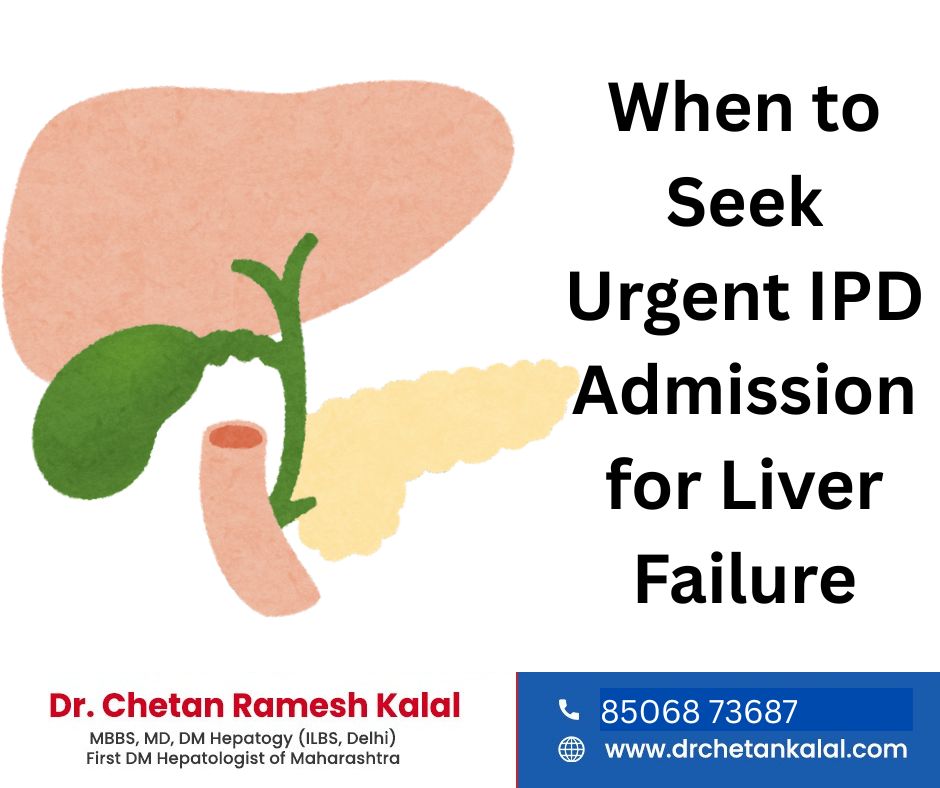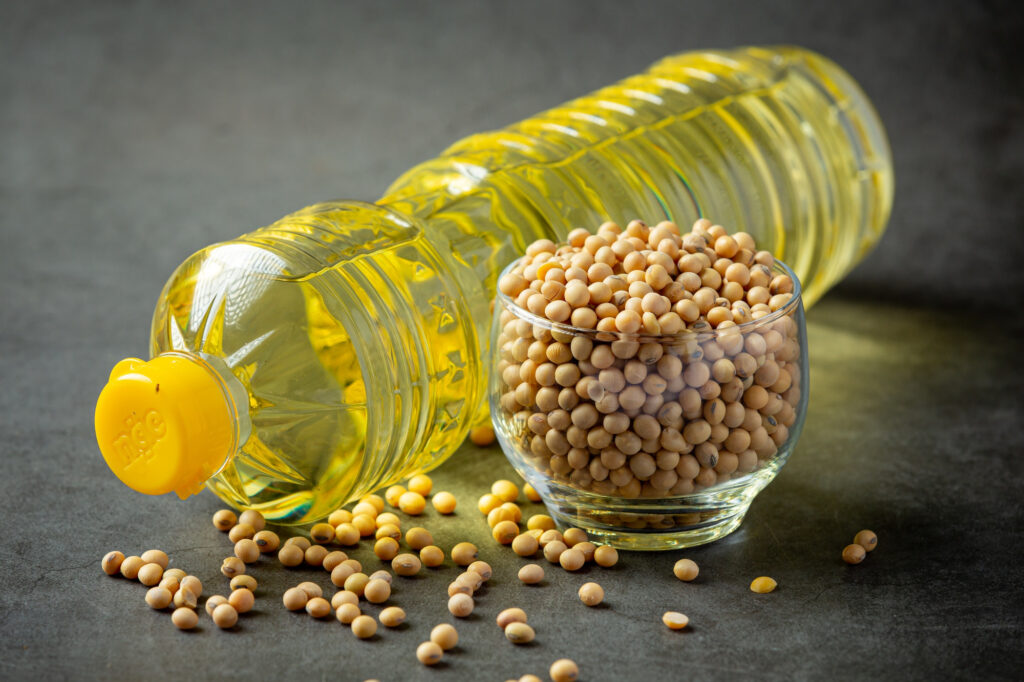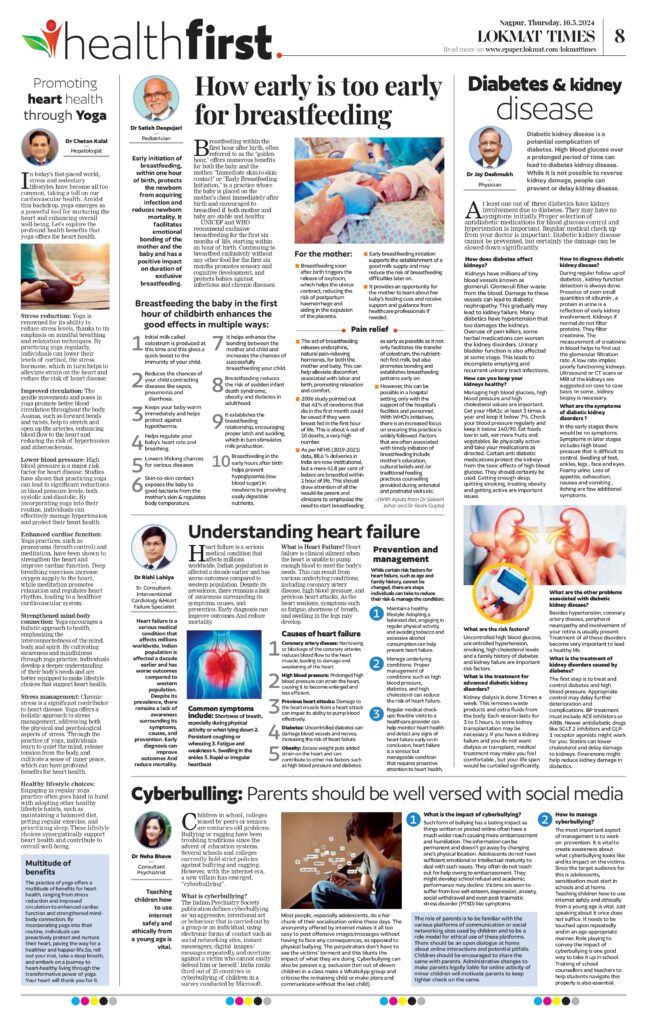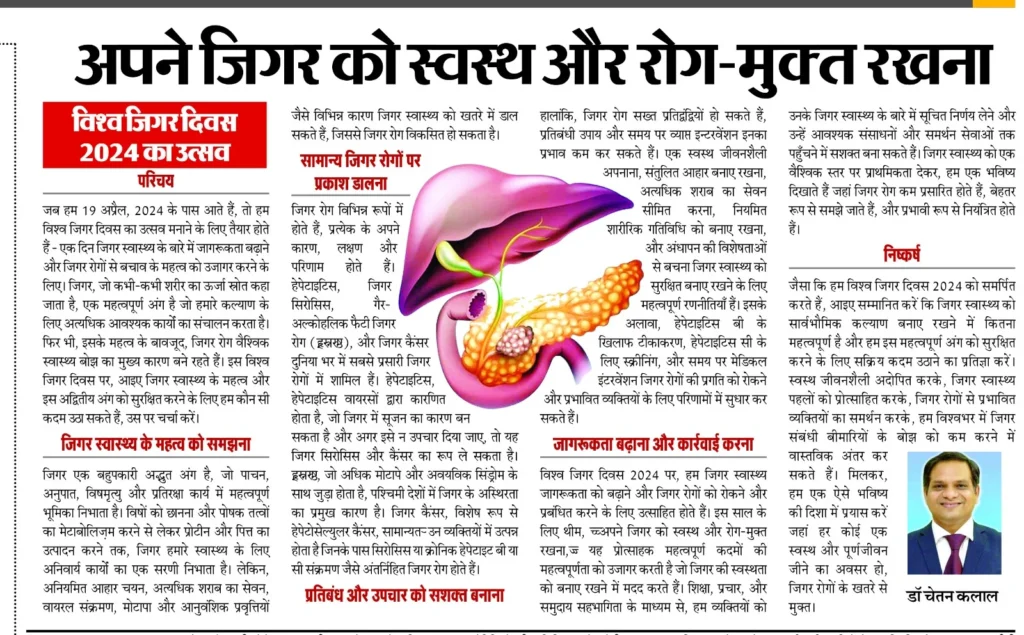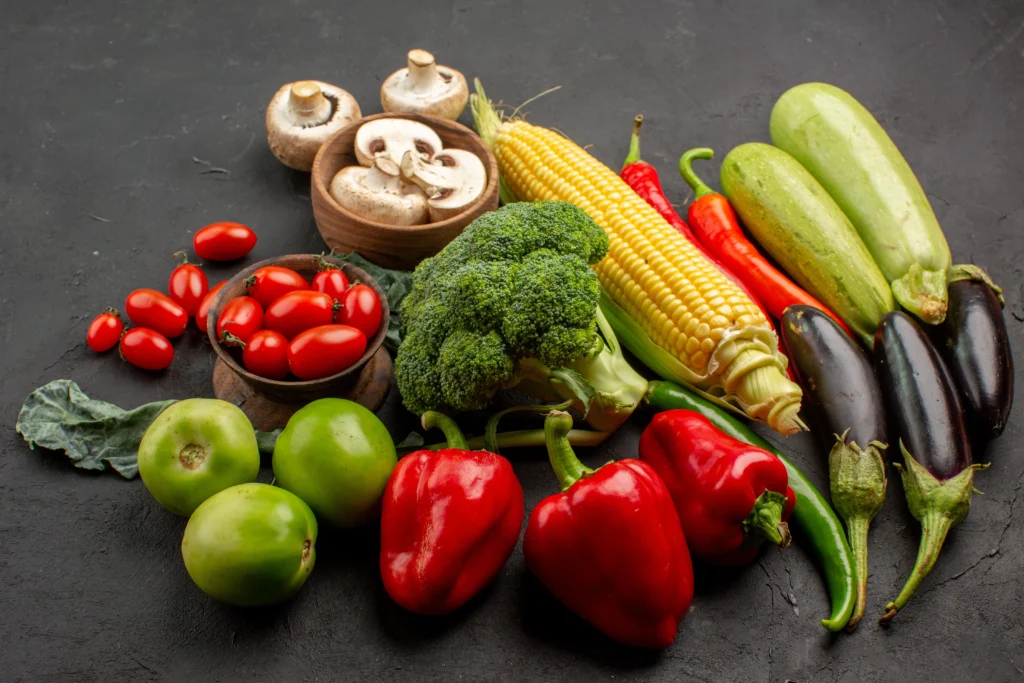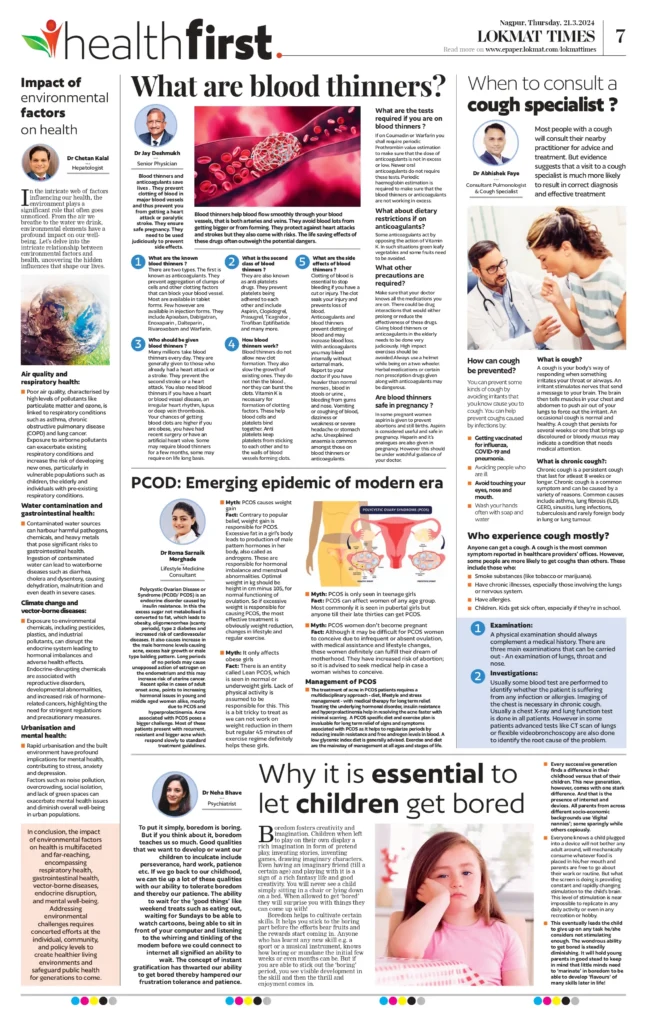When to Seek Urgent IPD Admission for Liver Failure – Dr. Chetan Kalal
When to Seek Urgent IPD Admission for Liver Failure – Dr. Chetan Kalal (Consultant Hepatologist & Liver Transplant Physician in Mumbai, Maharashtra) Why This Matters Liver failure doesn’t always arrive with a loud alarm. Sometimes, it begins quietly — a little fatigue, mild swelling, or yellow eyes that families mistake for “just jaundice.” But in reality, these can be early signs of a medical emergency. Knowing when to rush to the hospital for IPD (in-patient department) admission can mean the difference between recovery and tragedy. 🚨 Red-Flag Symptoms: Don’t Wait, Act Fast If you or a loved one with liver disease develops any of these, head straight to the hospital: Confusion, drowsiness, or personality changes → signs of hepatic encephalopathy. Severe jaundice (deep yellow eyes/skin) that worsens rapidly. Bleeding from mouth, nose, or rectum (gum bleeding, blood in vomit, or black stools). Swelling of the abdomen (tense ascites) with breathing difficulty. Sudden, severe abdominal pain with or without fever. Persistent vomiting or inability to eat/drink. Uncontrolled itching + dark urine + pale stools → severe cholestasis. 👉 In children with Wilson’s disease or acute hepatitis, these symptoms may progress within hours — delays can be fatal. 👨⚕️ What Happens in the Hospital (IPD Care) An urgent IPD admission ensures: 24×7 monitoring in ICU/HDU settings. Immediate stabilization: fluids, electrolytes, lactulose, blood products if bleeding. Advanced liver tests & imaging within hours. Decision-making for liver transplant if liver failure is not reversible. Bridge therapies like plasma exchange, MARS, or advanced ICU support until transplant. 🧭 When to Suspect Liver Failure in Chronic Patients If you already have cirrhosis, fatty liver, or hepatitis: Any sudden change in baseline health (increasing sleepiness, new swelling, weight gain, unexplained fever) should not be ignored. Families often say “kal tak theek tha, aaj kuch alag lag raha hai” — this is exactly when to rush to the hospital. 💡 Human Takeaway Liver failure can turn an ordinary day into an emergency. Don’t wait for things to “settle on their own.” If you notice confusion, bleeding, or sudden jaundice — treat it as a 911 for your liver. The earlier the admission, the better the chance of survival — sometimes even without a transplant. 🏥 Where to Seek Care At Gleneagles Hospital, Mumbai, Dr. Chetan R. Kalal and his team provide 24×7 emergency IPD admissions, ICU transfers, and liver transplant evaluations. With clinics across Worli, Bandra, Andheri, Navi Mumbai, and virtual access worldwide, patients get both speed and expertise when it matters most. ⚡ “Time lost is liver lost. If your liver warns you, don’t wait — admit, act, and save life.” 👉 Share this article with anyone at risk of liver disease. It could save a life.
When to Seek Urgent IPD Admission for Liver Failure – Dr. Chetan Kalal Read More »

